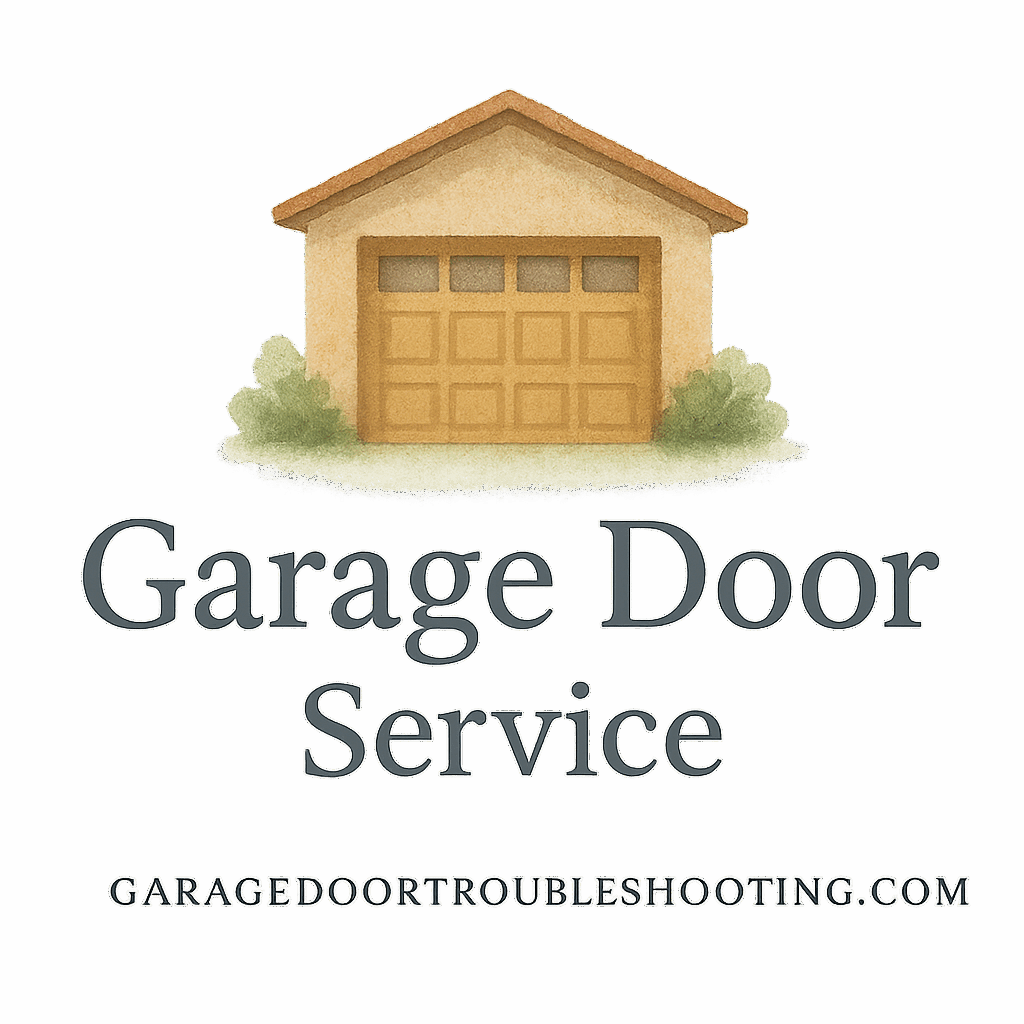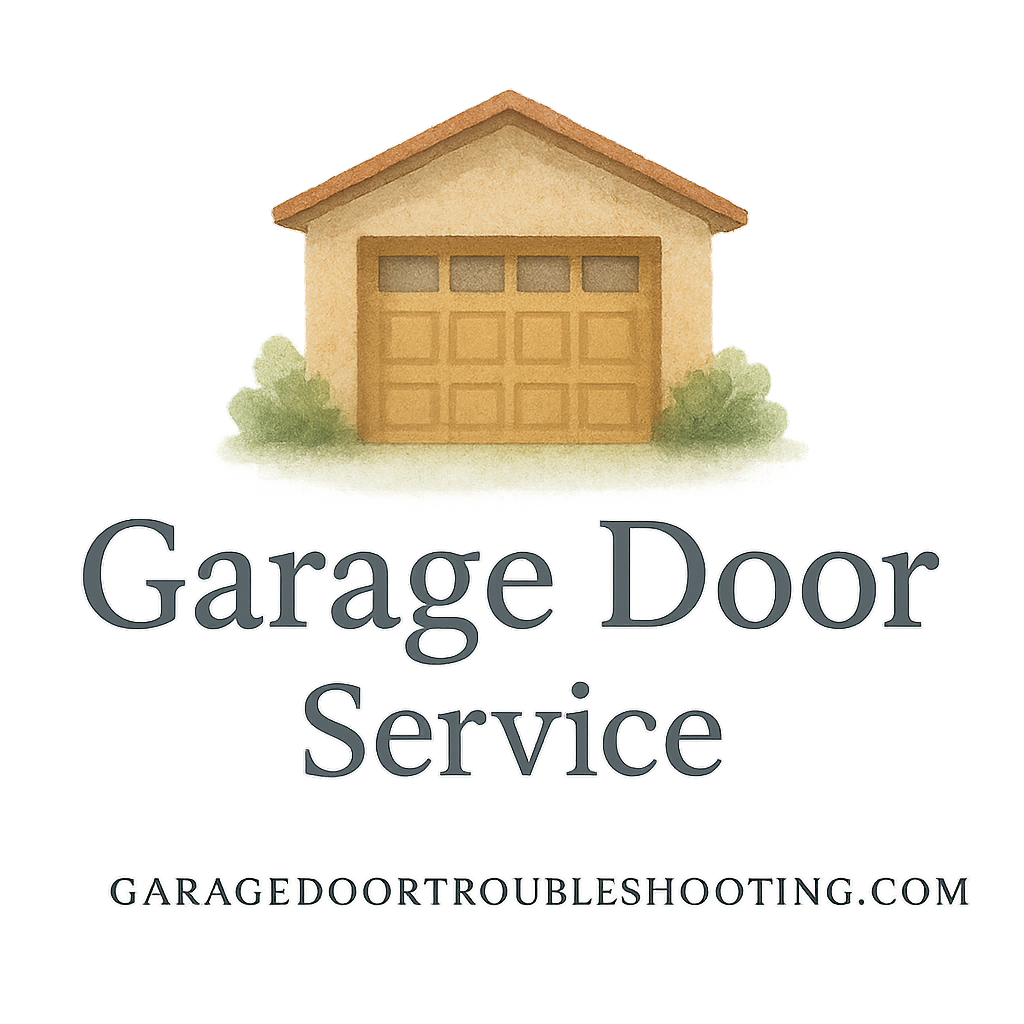Introduction: Why Garage Door Sensors Matter
Garage door sensors are the unsung heroes of your garage. They protect your car, your belongings, and most importantly, your family. Without them, a garage door could close unexpectedly, risking injury or property damage. But like all technology, sensors sometimes misbehave. That’s why understanding the common sensor issues in garage door repairs can save you frustration, time, and even money.
How Garage Door Sensors Work
The Role of Safety Sensors
Garage door sensors use infrared beams to detect objects in the path of a closing door. If something blocks the beam, the door stops or reverses—simple but life-saving.
Types of Sensors in Garage Doors
Most modern garage doors have two types of sensors:
- Safety beam sensors that prevent the door from closing on objects.
- Limit sensors that control how far the door travels up or down.
Common Symptoms of Garage Door Sensor Problems
Door Refuses to Close
If your garage door won’t close fully, a sensor is likely the culprit.
Flashing Lights on Sensors
Flashing lights usually indicate misalignment or dirt buildup.
Intermittent Functioning
If the door sometimes works and sometimes doesn’t, that’s a red flag for sensor issues.
1. Misaligned Sensors
Causes of Misalignment
Even a slight bump from a bicycle, lawn tool, or curious child can knock sensors out of alignment.
Simple Fixes You Can Try
Check that both sensors are facing each other directly. Adjust gently until the indicator lights stop blinking.
2. Dirty or Obstructed Sensors
Why Dust and Debris Cause Problems
Sensors work like little flashlights—if the lens is dirty, the beam gets blocked.
Cleaning and Maintenance Tips
Use a soft cloth to wipe the lens weekly. Avoid harsh cleaners that can scratch.
3. Faulty Sensor Wiring
Identifying Wiring Issues
Frayed or disconnected wires can stop sensors from communicating. Look for signs of wear or chew marks from pets.
When to Call a Professional
If you’re not comfortable with electrical work, call a professional from Garage Door Troubleshooting to avoid risky repairs.
4. Sensor Power Supply Problems
Tripped Breakers and Loose Connections
Sometimes the issue isn’t the sensor—it’s the power source. A tripped breaker or loose plug could be the reason.
Testing the Power Source
Plug something else into the outlet to see if it works. If not, reset the breaker.
5. Sunlight Interference
How Direct Sunlight Affects Sensors
Strong sunlight can mimic the infrared beam, confusing the system.
Shielding Solutions
Install shades, reposition sensors, or use sunlight filters to minimize interference.

6. Damaged Sensor Lenses
Signs of Lens Damage
Cracks, scratches, or clouding reduce sensor accuracy.
Replacing vs. Repairing Lenses
If the lens is too damaged, replacing is safer than repairing. Check the buying guide for quality replacements.
7. Moisture and Weather Damage
Effects of Rain and Humidity
Moisture corrodes wiring and fogs up lenses, leading to malfunction.
Weatherproofing Options
Use protective covers or relocate sensors slightly higher to avoid puddles.
8. Sensor Age and Wear
Lifespan of Typical Sensors
Most sensors last 8–10 years, depending on use and environment.
Knowing When to Replace
If your sensors constantly fail despite cleaning and adjustments, it’s time for a new set. See new door and sensor advice.
9. Interference from Other Devices
Wireless and Radio Signal Issues
Nearby devices like baby monitors, Wi-Fi routers, or even LED lights can disrupt sensor signals.
Reducing External Interference
Change frequencies, relocate devices, or use shielded cables.
10. Incorrect Installation
Common Installation Mistakes
Crooked mounts, uneven heights, or poor wiring during setup can cause persistent issues.
Hiring a Professional Installer
Save yourself headaches—check installation advice for reliable professional help.
DIY vs Professional Garage Door Repairs
Risks of DIY Sensor Fixes
Sure, DIY repairs sound tempting, but incorrect fixes could make your door unsafe. See why dangerous repairs should be avoided.
When Professional Services Are Safer
If the repair involves wiring, advanced diagnostics, or replacement, call in garage door professionals.
Preventing Future Sensor Issues
Regular Maintenance Routines
Check sensors monthly, clean lenses, and test door responses. Visit maintenance tips for more.
Creating a Maintenance Plan
A maintenance plan keeps your door safe year-round while extending sensor life.
Conclusion
Garage door sensors are small devices with a big responsibility. Whether it’s dust, misalignment, or wiring, knowing the common sensor issues in garage door repairs helps you stay prepared. With regular upkeep and timely professional support, your garage door will keep working smoothly—and safely.
FAQs
- How do I know if my garage door sensor is bad?
If your garage door won’t close or the sensor lights keep flashing, it’s a strong sign of failure. - Can I bypass my garage door sensors?
It’s possible but highly unsafe. Sensors are critical safety features and should not be bypassed. - Do garage door sensors need to be replaced often?
Typically, every 8–10 years, depending on usage and environment. - Why do my garage door sensors only work sometimes?
That’s usually due to loose wiring, dirt, or sunlight interference. - Are garage door sensor repairs covered in service contracts?
Yes, many service contracts include sensor maintenance and replacement. - What’s the safest way to clean garage door sensors?
Use a soft, dry cloth. Avoid water or harsh chemicals that can damage the lens. - Should I repair or replace faulty garage door sensors?
Minor issues like dirt or misalignment can be repaired. But if sensors are old or damaged, replacement is the smarter option.


